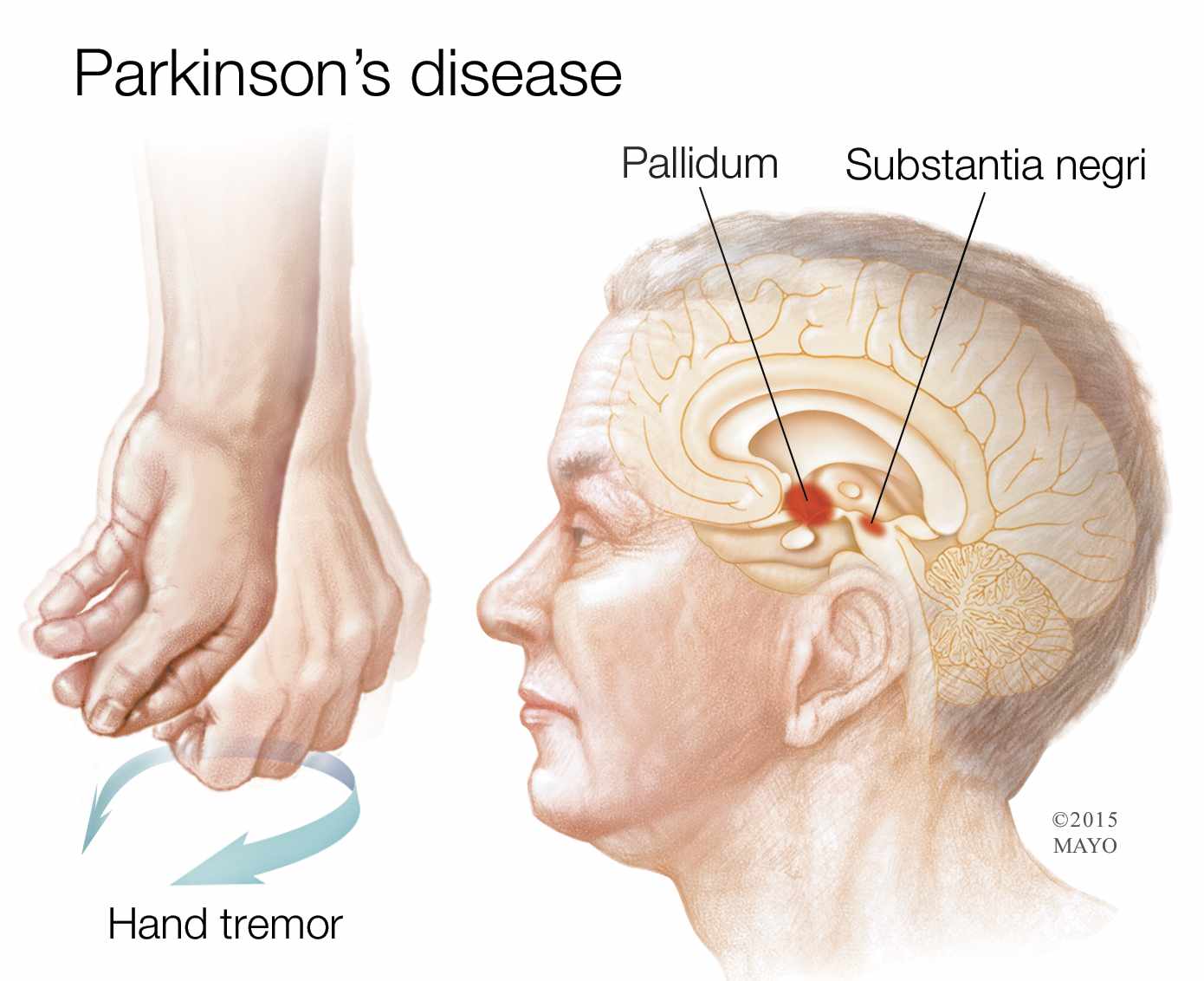-
Parkinson’s Disease: A Progressive Nervous System Disorder

The information below is from mayoclinic.org.
___________________________
Parkinson's disease is a progressive disorder of the nervous system that affects movement. It develops gradually, sometimes starting with a barely noticeable tremor in just one hand. But while a tremor may be the most well-known sign of Parkinson's disease, the disorder also commonly causes stiffness or slowing of movement.
In the early stages of Parkinson's disease, your face may show little or no expression, or your arms may not swing when you walk. Your speech may become soft or slurred. Parkinson's disease symptoms worsen as your condition progresses over time.
Although Parkinson's disease can't be cured, medications may markedly improve your symptoms. In occasional cases, your doctor may suggest surgery to regulate certain regions of your brain and improve your symptoms.
Read more about Parkinson's disease and ongoing research at Mayo Clinic.

Related news reports on Mayo Clinic News Network:
Study Determines Saliva Gland Test can Spot Early Parkinson's Disease (Feb. 1, 2016)
Aerobic Exercise Benefits Patients with Parkinson’s Disease (Jan. 19, 2016)
Mayo Clinic Q and A: Rate of progression of Parkinson’s disease hard to predict (Nov. 24, 2015)
Delving into Lewy Body Dementia (Nov. 6, 2015)
Mayo Clinic Q and A: Parkinson’s disease not the only cause of parkinsonism (Aug. 12, 2014)
Parkinson's Blood Test May Reveal Disease Progression (Sept. 18, 2013)
Parkinsonism - Different than Parkinson's Disease (Sept. 17, 2013)
Parkinson’s Goes Prime Time: Five Things to Know about Parkinson’s Disease (Aug. 29, 2013)







